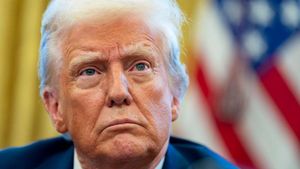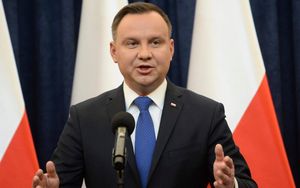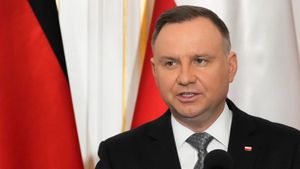Widespread anti-government protests have unfolded across Serbia, ignited by public outrage following the tragic collapse of the concrete canopy at Novi Sad railway station on November 1, 2024, which claimed the lives of 15 individuals. These developments have provoked demonstrations from citizens frustrated with the ruling government’s accountability and perceived corruption.
Triggering events include the canopy collapse, which was followed by allegations of negligence and poor oversight during the renovation of the railway station, carried out by Chinese contractors paired with local Serbian firms. Over the last few weeks, Serbia has witnessed student-led blockades and protests, marking this socio-political movement as one of the largest since the late 1990s.
Support has surged from various sectors, as lawyers announced a 30-day work stoppage effective until March 4 to express solidarity with the student movement. Denis Beciric, representing the Bar Association, articulated the collective sentiments on February 1, stating, "The pressure of [all] who are participants... will spill over... to the state, so I believe there will be an effect.” The lawyers won’t enter courtrooms nor engage with police, effectively bringing the justice system to a standstill.
Throughout this period, several protests have pressed forth across major cities, including Belgrade and Novi Sad, where protesters have called for the government’s transparency concerning the renovation process and direct accountability for the tragedy. Key demands from the student protesters involve the prosecution of those complicit in both the construction oversight and the subsequent attacks on demonstrators by pro-government supporters.
This wave of activism came to the forefront when Serbian Prime Minister Milos Vučević announced his resignation on January 28, becoming the latest casualty of these protests. Vučević characterized his decision as one of accountability, stating, "A prime minister’s resignation equated to the resignation of the entire cabinet.” His resignation underscored the increasing pressure placed upon the ruling Serbian Progressive Party (SNS) and its affiliates.
Public objections have also targeted Novi Sad Mayor Milan Đurić, who also resigned amid outrage following violent confrontations where students were assaulted for their protesting. The resignations have drawn mixed reactions, with opposition leaders like Srdjan Milivojevic of the Democratic Party responding critically. He asserted, “No resignations, neither Vucevic’s nor yours, will save you after last night’s attack on our children.”
This growing upheaval highlights widespread disillusionment surrounding the government’s accountability, which critics assert has run rampant under President Aleksandar Vučić’s authoritarian rule. The power of the state-controlled media’s initial neglect of the protests reflects this distress. For months, the profile of the demonstrations received little coverage from Radio Television Serbia (RTS), previously serving as the propaganda mouthpiece for the Vučić administration. Its sudden shift to coverage of the protests has not gone unnoticed by the regime. “This is scandalous reporting,” the SNS lambasted as it expressed concern over RTS’s perceived bias toward opposition narratives.
Meanwhile, the protests attracted significant local support from residents. Citizens provided sustenance and comfort to protesters, rallying together and contributing to the movement’s momentum. Particularly after tennis star Novak Djokovic, who had previously aligned with Vučić, appeared at games wearing support for the students, many citizens remarked on the cultural shift this represented for the protests.
Major gatherings involved the blockade of key infrastructure like the Freedom Bridge over the Danube, contrasting the starkness of the protest against the elegance of the city backdrop. Farmers joined the students by positioning tractors as barriers to shield protesters from government supporters intent on disruption.
These demonstrations serve as not just calls for justice for the victims of the collapsed canopy but also as expressions of collective dissatisfaction with government corruption, sparking debate about long-standing issues of accountability within Serbia’s political system.
On February 1, Beciric reiterated the hope of lasting societal change when addressing the Bar Association’s decision. He believed this strike could be maximally effective, stating, “This is just one of the protests of one profession... I believe this is serious pressure on the state.”
The new decade has positioned student activists and citizens as beacons of hope, embodiment of civic duty against admitted corruption and governmental failures. The Novi Sad canopy disaster may have laid bare various public concerns, igniting fervor for political reform, but it also highlights the potential for public unity against governmental negligence.
The outcomes from these protests will likely shape the political terrain of Serbia moving forward as Vučić’s government faces mounting disapproval followed by immediate calls for change, putting Serbia at historical crossroads, reminiscent of the strife seen during the Milosevic era.



